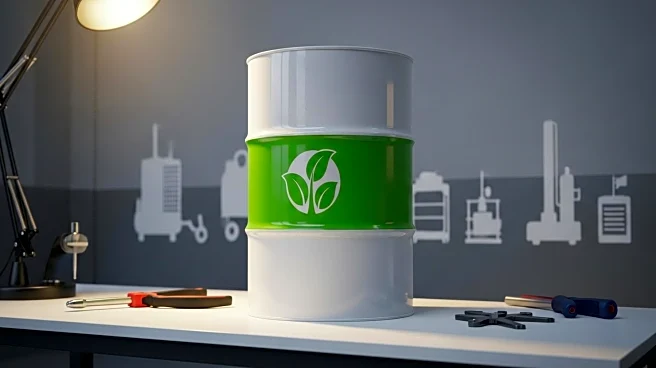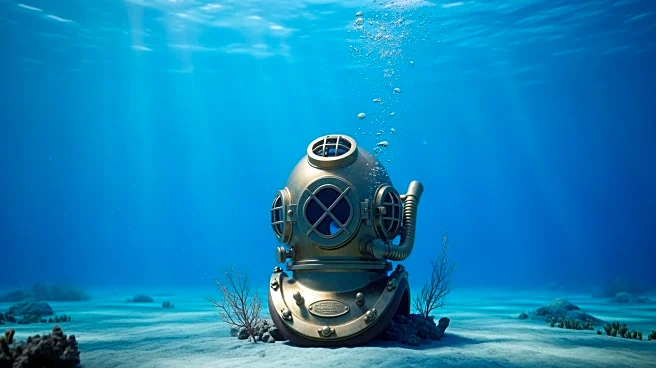What's Happening?
Chevron has announced the reintroduction of its Clarity line of ashless hydraulic oils, featuring two upgraded formulations: Clarity EliteSyn AW and Clarity AW. These products are designed to provide high levels of equipment protection and operational efficiency while supporting environmental performance objectives. The Clarity EliteSyn AW, previously known as Clarity Synthetic AW, is a zinc-free, ashless formulation aimed at eliminating heavy metals and reducing environmental risks. It incorporates Chevron's VARTECH technology, which has shown efficiency gains of up to 13% in fuel savings and 11% in productivity during excavator field trials. The synthetic blend also boasts a TOST life exceeding 10,000 hours, a high viscosity index, and a pour point below -40°C, ensuring long service life in extreme conditions. Clarity AW, formerly Clarity Hydraulic AW, is a mineral-based, ashless formulation engineered for both mobile and stationary hydraulic systems, offering extended oil life and wear protection.
Why It's Important?
The reintroduction of Chevron's Clarity line underscores the company's commitment to sustainable lubrication technologies, which are crucial for industries such as construction, marine, mining, and industrial operations. By focusing on environmentally sensitive regions, Chevron aims to meet the growing demand for sustainable products that do not compromise on performance. The efficiency gains demonstrated by the new formulations could lead to significant cost savings and productivity improvements for businesses relying on heavy-duty equipment. This move also aligns with broader industry trends towards reducing environmental impact and enhancing operational efficiency, potentially setting a benchmark for competitors in the lubricant market.
What's Next?
Chevron's global lubricants network will distribute the new Clarity products in multiple ISO viscosity grades, making them accessible to a wide range of industries. As businesses increasingly prioritize sustainability, Chevron's focus on environmentally friendly lubricants may influence other companies to adopt similar practices. The success of these products in the market could encourage further innovation in sustainable lubrication technologies, potentially leading to new product developments and collaborations within the industry.
Beyond the Headlines
The introduction of these sustainable lubricants may have broader implications for regulatory standards in the industry. As companies like Chevron lead the way in reducing environmental risks associated with hydraulic oils, there could be increased pressure on regulatory bodies to update guidelines and standards to reflect these advancements. This could result in stricter environmental regulations and encourage more companies to invest in sustainable product development.








